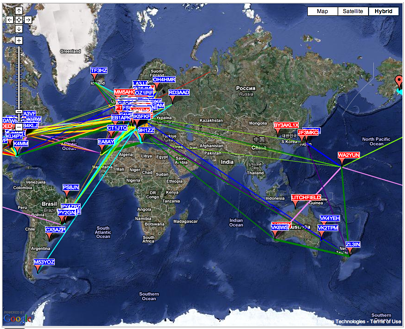 A short while ago, Canonical released the latest version of Ubuntu: the fabled Maverick Meerkat, 10.10. This is the latest in Ubuntu's normal release cycle and is not LTS. I had occasion to upgrade a couple of my personal computers running Ubuntu to the wily Meerkat. Find out what's new in 10.10, and what's old, in the first segment of LHS #049.
A short while ago, Canonical released the latest version of Ubuntu: the fabled Maverick Meerkat, 10.10. This is the latest in Ubuntu's normal release cycle and is not LTS. I had occasion to upgrade a couple of my personal computers running Ubuntu to the wily Meerkat. Find out what's new in 10.10, and what's old, in the first segment of LHS #049.
After that, Richard and I tackle the WSPR protocol for ham radio again. When it was discussed the first time around, neither of us had much of an idea what it was or how it worked. Armed with a broader understanding and a lot more experience, we talk about what works and what doesn't work with WSPR, how to get it up and running on your system and what we like and don't like about it.
Following that it's on to witty banter, a passel of badgers, some hijinks, censorship, feedback and more entertainment than you can shake a wet hedgehog at. Thanks for tuning in. We love you all.
73 de The LHS Guys
Podcast: Play in new window | Download
